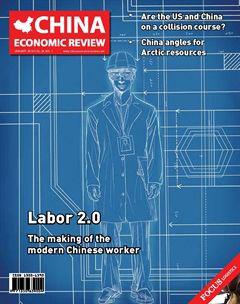Second thoughts
China is well regarded for many reasons, but the accuracy of its government-issued statistics is not one of them. Its unemployment data is notoriously unreliable, and international media this summer accused local governments of manipulating power production figures to mask sluggish growth.
But when it comes to measuring income inequality, Chinas government does not even try. Last January, for the 11th year in a row, the government said it could not release the Gini coefficient, a common measure of income inequality, because data on high-income groups was incomplete.
The new China Household Finance Survey (CHFS), released December 9, attempts to fill this void. Backed by the Peoples Bank of China and the Southwestern University of Finance and Economics, the project surveyed 8,438 households in 320 neighborhoods, excluding Tibet, Xinjiang, Inner Mongolia, Hong Kong and Macau. These responses indicated Chinas Gini coefficient is now a shocking 0.61.
Equally surprising is how fast the coefficient has increased(a higher score indicates more inequality in family incomes). Thirty years ago, decades of Maoist policies had left everyone in China about equally poor. By 2005, the World Bank estimated Chinas Gini coefficient at 0.425, above the US measure at 0.408 in 2000.
The CHFS shows that Chinese development has also left a significant wealth gap between urban and rural areas, with much higher incomes in Chinas coastal cities than in the less developed interior. According to CHFS figures, the average household income for Chinese urban families was RMB72,000(US$11,555) in 2010, 2.5 times that of rural households. The survey found the biggest differences among rural and urban wages and salary, business income and investment income. These factors lead to an increase in the Gini coefficient, although agricultural income and transfer payments helped to rein in disparities. Interestingly, welfare payments actually worsened inequality between urban and rural households.
The report ends on a hopeful note. While the income gap is astonishing, it is a natural product of rapid economic growth, it says. The government has promised measures to reduce the income gap, and it has the fiscal resources to do so, by investing in education and narrowing inequalities of opportunity. Only time – and more independent surveys – will tell whether China can reverse this trend.



